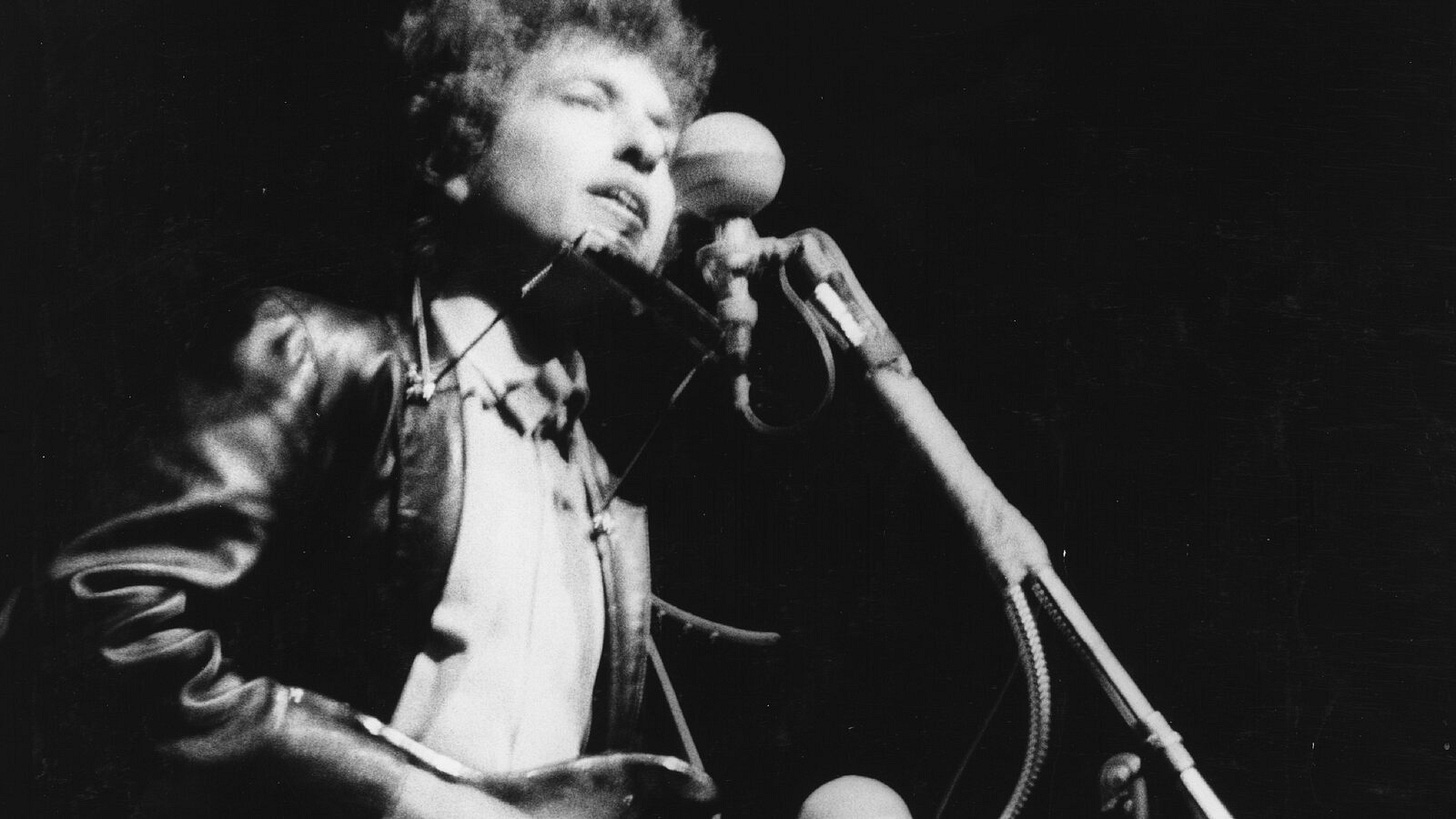On This Day, 1965: Bob Dylan Plugged In and Blew the Fuse on Folk
When Dylan went electric at Newport, he didn’t just change his sound, he redefined what it meant to stand for something
A Guitar, a Jacket and a Moment of Truth
On this day, 25th July 1965, Bob Dylan walked on stage at the Newport Folk Festival with an electric guitar slung across his shoulder and a black leather jacket draped over a frame that had once carried the weight of protest songs and Woody Guthrie tributes. What happened next sent shockwaves through the folk scene, the music industry and, in truth, American culture itself.
There are those who still argue about the sound. Was it the fuzz of a rushed set-up? Was it a betrayal of purist expectations? Or was it, simply, too loud for the times? But to focus on the jeering crowd and the stammering amplifiers is to miss the point entirely. This was never about the noise, it was about the nerve.
Because what Dylan did that night in Newport was not an accident or a misstep. It was a declaration. A rip in the curtain. A refusal to become the mascot of a movement that wanted him preserved in amber.
He did not just go electric. He went forward.
From Outcast to Oracle
To understand the courage it took to defy an audience that adored him, you have to go back to where it started. Hibbing, Minnesota. A high school auditorium. A gangly teenager named Bob Zimmerman pounding a piano to bits in front of classmates who barely tolerated him. His mic was cut that night, his set shortened by a principal who could not quite handle the racket.
But the young man did not care. He already knew the sound he wanted. He had Little Richard in his bloodstream and Elvis on his mind. Folk would come later, by way of Guthrie and Greenwich Village, but his first language had been rebellion and his mother tongue had always been volume.
Dylan's journey through the 1960s was meteoric, but it was never smooth. His debut album barely sold. His television breakthrough on the Ed Sullivan Show never materialised because he refused to water down his message. Where others saw opportunity, he often saw compromise.
That uncompromising streak made him an icon to those who needed one. He sang of war, civil rights, paranoia and power. His words were weapons. But even then, Dylan was already becoming uneasy with the weight of expectation. The folk scene wanted a prophet, not a provocateur. And Dylan had no interest in staying where he had already been.
A Stage Set for Sacrilege
Newport had become hallowed ground for folk loyalists. A place of acoustic purity and lyrical righteousness. Dylan had played there before and had held the crowd in his hand. But 1965 was different. The electric currents of change were already humming behind the scenes.
The catalyst came, fittingly, from backstage pettiness. An organiser scoffed at the Paul Butterfield Blues Band for daring to use electric instruments. Dylan, ever sensitive to hypocrisy in authority, took that as a challenge. If electric guitars were unwelcome, then that is precisely what he would bring.
With barely any time for rehearsal, he grabbed Butterfield’s band and cobbled together a performance that would alter the trajectory of modern music. As he stepped out to face the crowd, no one truly knew what was coming.
The jeers came early. The purists were not impressed. But Dylan did not flinch. He tore into “Maggie’s Farm” like a man possessed, hammering every chord with the precision of someone who had finally stopped asking for permission. It was not just a new sound, it was a new stance.
And while some saw betrayal, others saw brilliance. Folk rock was born that day, not in a studio or a strategy meeting, but in defiance. In a moment that was equal parts risk and revelation.
Genius Refuses to Stand Still
Much has been written about Dylan’s impact in the years that followed. The Nobel Prize, the countless albums, the legendary tours. But nothing captures the essence of his genius quite like Newport.
What matters is not whether the audience clapped or booed. What matters is that Dylan chose not to be trapped by their cheers. He would not become a jukebox for the movement. He would not wear the crown of counterculture figurehead if it meant singing only the songs that others had approved.
That decision, to pivot, to evolve, to antagonise in the name of authenticity, is what separates Dylan from so many others. He did not go electric to court a bigger crowd. He did it because it was the only honest next step.
And that is why, all these decades later, we still talk about it. Because in that single act, Dylan gave everyone permission to grow, even if it meant growing apart. He showed that art does not have to please everyone to mean something. Sometimes it means more when it does not.
Legacy Born in Feedback
Looking back now, the outrage seems quaint. Folk rock became a staple. Electric Dylan ushered in some of the greatest songs ever written. And Newport 1965 stands not as a scandal but as a spark.
The performance was rough, the sound imperfect, but it was alive. Dylan had brought his music back to its roots, to the edge of chaos, where it had always belonged. It was the same defiant kid from Hibbing, but this time, nobody could cut the mic.
He did not ask to be worshipped. He asked to be heard. And when the folk faithful turned their backs, he plugged in anyway.
On this day, Bob Dylan went electric. And nothing in music was ever the same again.


